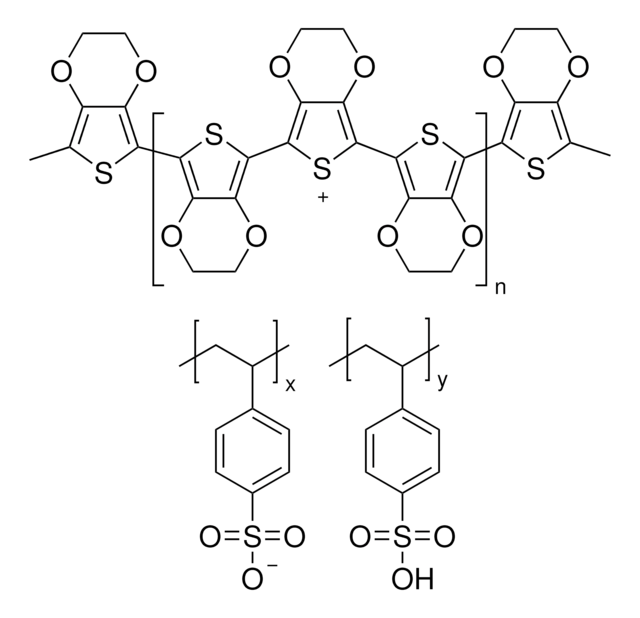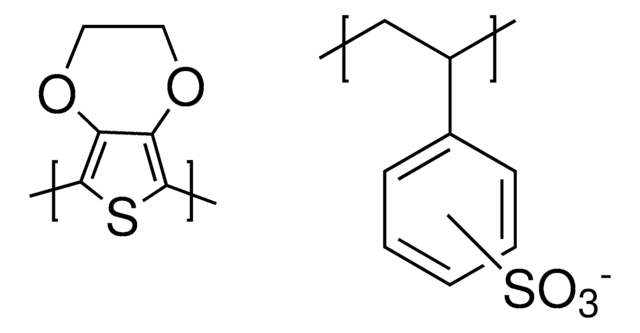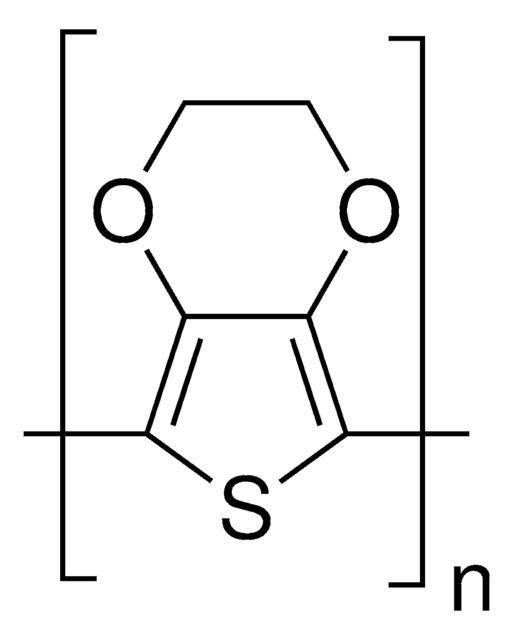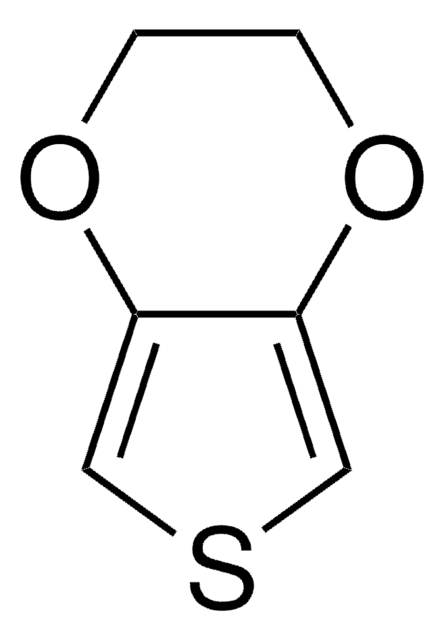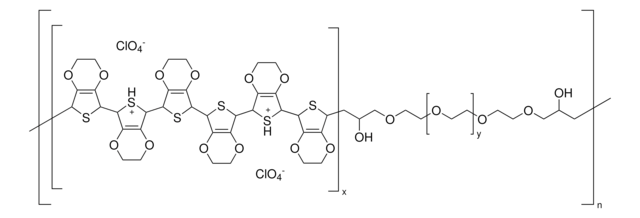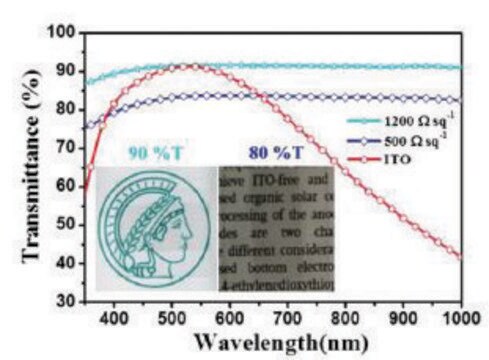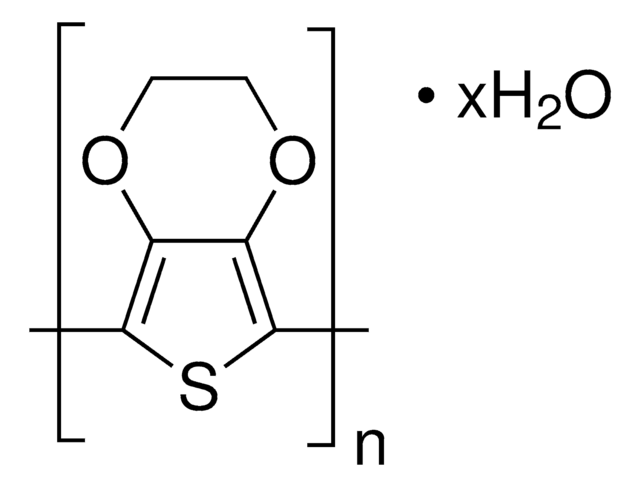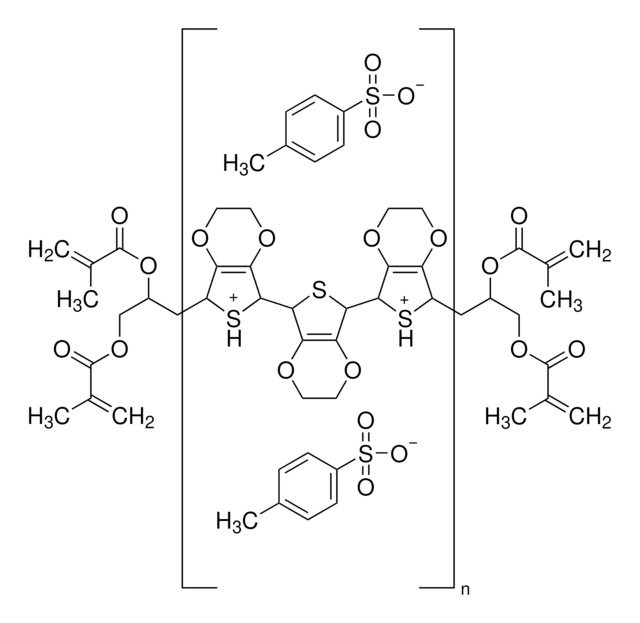560596
PEDOT:PSS
low-conductivity grade, 2.7 wt. % aqueous dispersion
Synonym(s):
PEDOT:PSS, Poly(2,3-dihydrothieno-1,4-dioxin)-poly(styrenesulfonate)
About This Item
Recommended Products
product name
Poly(3,4-ethylenedioxythiophene)-poly(styrenesulfonate), 2.7 wt % dispersion in H2O, low-conductivity grade
grade
low-conductivity grade
Quality Level
composition
PEDOT content, ~0.14%
PSS content, ~2.6%
concentration
2.7 wt % dispersion in H2O
impurities
<300 ppm Na
particle size
<200 nm, coeff var >95%
pH
1.2-1.8
conductivity
~1E-5 S/cm
viscosity
<20 cP(20 °C)
storage temp.
2-8°C
Looking for similar products? Visit Product Comparison Guide
General description
Application
Features and Benefits
Packaging
Signal Word
Danger
Hazard Statements
Precautionary Statements
Hazard Classifications
Eye Dam. 1 - Skin Corr. 1
Storage Class Code
8B - Non-combustible corrosive hazardous materials
WGK
WGK 2
Flash Point(F)
Not applicable
Flash Point(C)
Not applicable
Personal Protective Equipment
Choose from one of the most recent versions:
Already Own This Product?
Find documentation for the products that you have recently purchased in the Document Library.
Customers Also Viewed
Articles
Tutorial Lithography Nanopatterning at Sigma-Aldrich. Lithography, based on traditional ink-printing techniques, is a process for patterning various layers, such as conductors, semiconductors, or dielectrics, on a surface.
New conducting and semiconducting polymers for plastic electronics
Find advantages of inorganic interface layer inks for organic electronic & other applications.
Progress in Organic Thermoelectric Materials & Devices including high ZT values of >0.2 at room temperature by p-type (PEDOT:PSS) & n-type (Poly[Kx(Ni-ett)]) materials are discussed.
Our team of scientists has experience in all areas of research including Life Science, Material Science, Chemical Synthesis, Chromatography, Analytical and many others.
Contact Technical Service